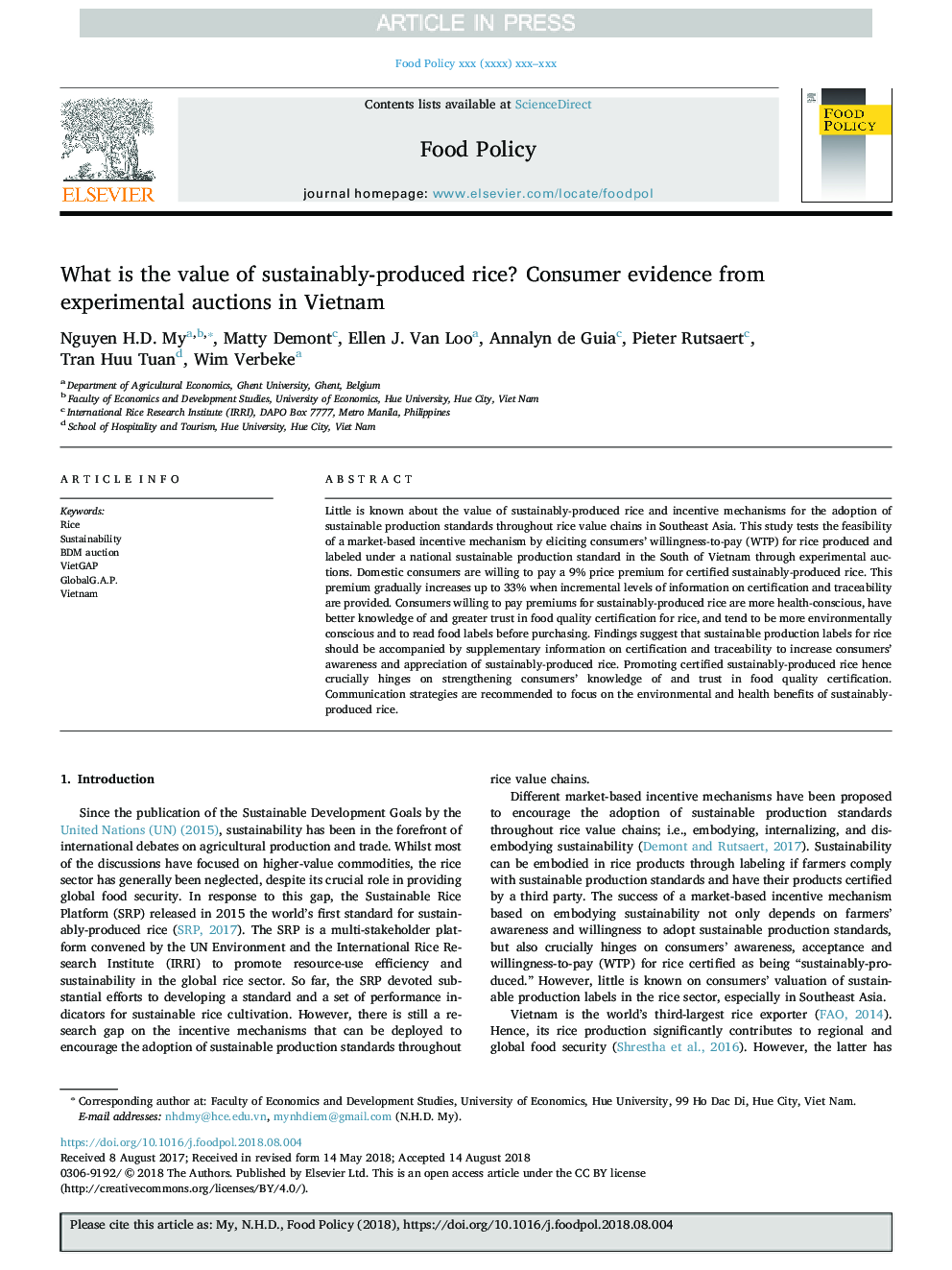| Article ID | Journal | Published Year | Pages | File Type |
|---|---|---|---|---|
| 8960834 | Food Policy | 2018 | 14 Pages |
Abstract
Little is known about the value of sustainably-produced rice and incentive mechanisms for the adoption of sustainable production standards throughout rice value chains in Southeast Asia. This study tests the feasibility of a market-based incentive mechanism by eliciting consumers' willingness-to-pay (WTP) for rice produced and labeled under a national sustainable production standard in the South of Vietnam through experimental auctions. Domestic consumers are willing to pay a 9% price premium for certified sustainably-produced rice. This premium gradually increases up to 33% when incremental levels of information on certification and traceability are provided. Consumers willing to pay premiums for sustainably-produced rice are more health-conscious, have better knowledge of and greater trust in food quality certification for rice, and tend to be more environmentally conscious and to read food labels before purchasing. Findings suggest that sustainable production labels for rice should be accompanied by supplementary information on certification and traceability to increase consumers' awareness and appreciation of sustainably-produced rice. Promoting certified sustainably-produced rice hence crucially hinges on strengthening consumers' knowledge of and trust in food quality certification. Communication strategies are recommended to focus on the environmental and health benefits of sustainably-produced rice.
Keywords
Related Topics
Life Sciences
Agricultural and Biological Sciences
Food Science
Authors
Nguyen H.D. My, Matty Demont, Ellen J. Van Loo, Annalyn de Guia, Pieter Rutsaert, Tran Huu Tuan, Wim Verbeke,
